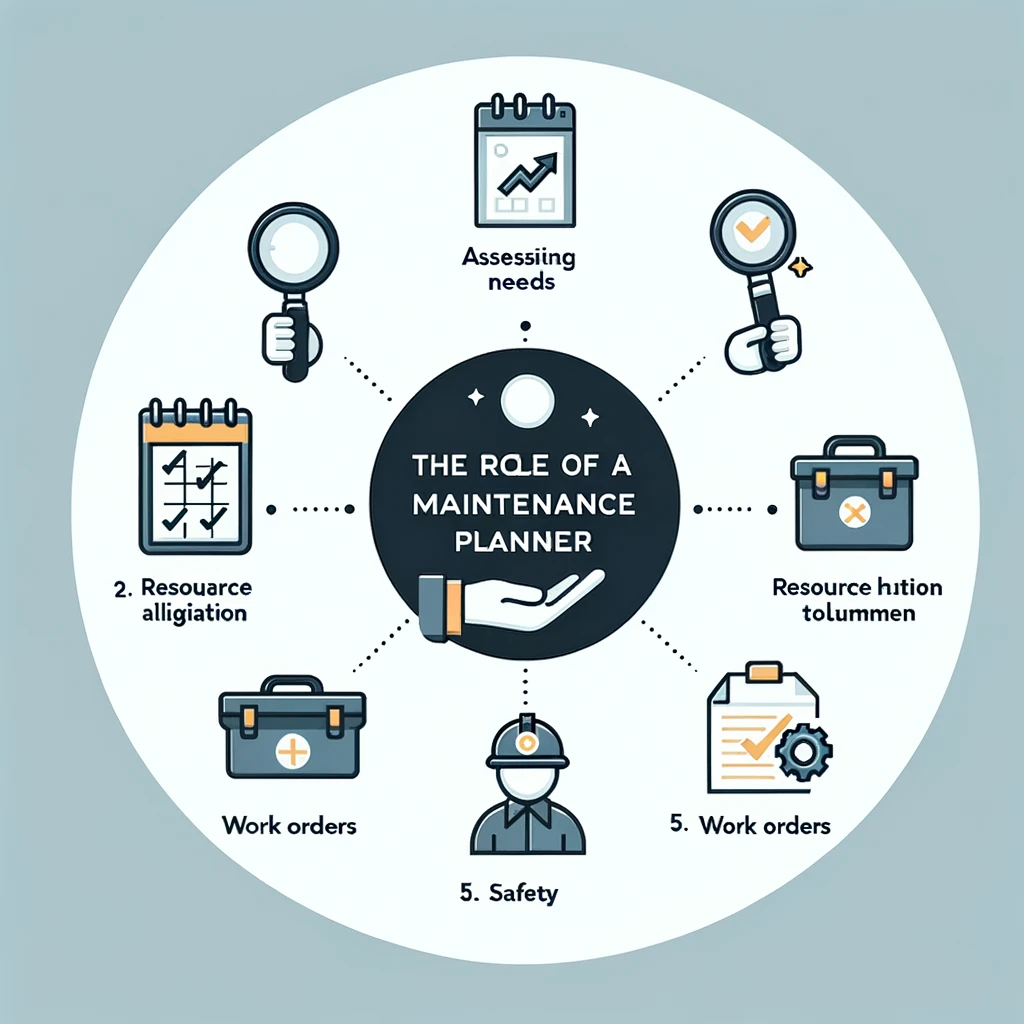Do You Really Need a Maintenance Planner?
The role of a maintenance planner is pivotal in ensuring the seamless operation and longevity of machinery and equipment within the industrial and manufacturing sectors. A maintenance planner serves as a strategic cornerstone, tasked with ensuring that maintenance activities are efficiently planned, resources are judiciously allocated, and downtime is substantially minimized. This article delves deeply into the realm of maintenance planning, illuminating its significance, delineating key responsibilities, and offering best practices for optimal performance.

The Essence of Maintenance Planning
At its core, maintenance planning involves orchestrating maintenance activities to enhance equipment reliability and operational efficiency. This process encompasses identifying maintenance needs, formulating methodologies for execution, and timing the interventions.
Key Responsibilities of a Maintenance Planner
1. Assessing Maintenance Needs
This involves a thorough identification and analysis of the maintenance requirements of equipment and facilities. A maintenance planner must evaluate the condition and performance of machinery to determine what maintenance is necessary and when it should be performed. This process is essential for proactive maintenance management.
2. Scheduling and Planning
Developing detailed maintenance schedules is a critical responsibility. This includes considering various factors such as workforce availability, parts inventory, and equipment status. Effective scheduling ensures that maintenance activities are carried out without disrupting normal operations.
3. Resource Allocation
A maintenance planner must ensure that all necessary resources are available for maintenance tasks. This includes tools, materials, and human resources. Proper allocation of resources is crucial for the efficient execution of maintenance activities.
4. Work Order Management
Creating, tracking, and closing work orders are fundamental tasks in maintenance planning. This also involves ensuring accurate documentation of maintenance activities. Efficient work order management helps in tracking maintenance progress and in maintaining historical data for future reference.
5. Safety Compliance
Ensuring that all maintenance activities comply with safety standards and regulations is a paramount responsibility. This includes adhering to occupational safety and health guidelines and ensuring that maintenance work does not pose any hazards.
The Importance of Maintenance Planning
1. Minimizing Downtime
Efficient maintenance planning is key to reducing machine downtime. Quick and effective maintenance ensures that machinery and equipment are back in operation with minimal delay, maintaining productivity and operational efficiency.
2. Cost Efficiency
Effective planning aids in controlling budgets by optimizing the use of resources and preventing wasteful practices. This includes the judicious use of materials, efficient scheduling of personnel, and avoiding unnecessary maintenance activities.
3. Enhancing Equipment Life
Regular and well-planned maintenance extends the operational life of equipment. This preventive approach leads to long-term cost savings by reducing the need for frequent repairs or replacements.
4. Safety Improvement
A well-maintained environment significantly enhances safety for workers. Regular maintenance reduces the risk of accidents and ensures compliance with safety regulations, creating a safer workplace.
In summary, the role of a maintenance planner is integral to the smooth operation of industrial facilities. By effectively managing maintenance tasks, planners contribute to operational efficiency, cost savings, equipment longevity, and workplace safety.
Best Practices for Superior Maintenance Planning
Emphasizing Preventive Maintenance
Favoring preventive over reactive maintenance is crucial. This approach entails routine inspections and servicing to forestall equipment failures.
Utilization of Maintenance Planning Software
Employing digital tools can streamline the planning process. These applications offer functionalities such as scheduling, inventory control, and data analytics for informed decision-making.
Establishment of Standard Operating Procedures (SOPs)
Formulating SOPs for maintenance tasks ensures uniformity, efficiency, and safety. These procedures should encompass detailed instructions and checklists for each task.
Continuous Training and Skill Enhancement
Investing in ongoing training for maintenance staff is vital. This ensures that the team remains conversant with the latest techniques, technologies, and safety norms.
Monitoring and Continuous Improvement
Regularly tracking maintenance outcomes and assessing the efficacy of planning strategies is essential. This approach aids in pinpointing areas needing improvement and adjusting strategies accordingly.
Conclusion
In the intricate tapestry of industrial operations, a maintenance planner is indispensable for ensuring operational fluency and organizational success. By adeptly managing maintenance activities, they not only facilitate the smooth functioning of machinery but also contribute significantly to the organization’s overall achievements. Adopting best practices in maintenance planning leads to reduced downtime, financial savings, and a safer work environment, thereby enhancing business performance and sustainability.
In sum, the role of a maintenance planner, while demanding, is integral to the modern industrial landscape, offering both significant challenges and rewards.
Frequently Asked Questions on Maintenance Planning and Planners
What Is Maintenance Planning and Why Is It Important?
Maintenance planning involves strategically scheduling and managing maintenance activities to ensure operational efficiency and equipment longevity. It’s crucial for minimizing downtime, optimizing resource usage, enhancing equipment life, and maintaining a safe working environment.
What Are the Key Responsibilities of a Maintenance Planner?
A maintenance planner is responsible for assessing maintenance needs, scheduling and planning maintenance tasks, allocating resources, managing work orders, and ensuring compliance with safety standards.
How Does a Maintenance Planner Differ from a Maintenance Technician?
While a maintenance technician focuses on executing repair and maintenance tasks, a maintenance planner is responsible for the strategic planning and scheduling of these tasks. The planner ensures that the technicians have the necessary resources and time to perform their duties efficiently.
Can Small Businesses Benefit from Having a Maintenance Planner?
Yes, even small businesses can benefit from maintenance planning. Effective planning can help small businesses manage their resources better, avoid unexpected equipment failures, and save costs in the long run.
What Skills are Essential for a Successful Maintenance Planner?
Essential skills include strong organizational and planning abilities, technical knowledge of maintenance procedures and equipment, proficiency in maintenance management software, and excellent communication skills.
How Does Maintenance Planning Impact Cost Efficiency?
Maintenance planning helps in optimizing resource usage, preventing wasteful practices, and avoiding costly emergency repairs. This proactive approach can lead to significant long-term cost savings.
What Role Does Technology Play in Modern Maintenance Planning?
Technology, especially maintenance management software, plays a vital role in modern maintenance planning. It allows for better scheduling, resource tracking, and data analysis, leading to more informed decision-making.
Is On-the-Job Experience Important for a Maintenance Planner?
Yes, practical experience is very important. It provides a deeper understanding of the challenges and nuances involved in maintenance tasks, which is essential for effective planning.
How Do Maintenance Planners Ensure Safety Compliance?
Maintenance planners ensure safety compliance by adhering to safety standards and regulations, conducting regular safety audits, and incorporating safety considerations into all maintenance plans.
What Is the Future Outlook for Maintenance Planning as a Career?
The demand for skilled maintenance planners is expected to remain strong, especially in industries where equipment reliability and operational efficiency are crucial. The role is evolving with advancements in technology and data analytics, offering a dynamic career path.
